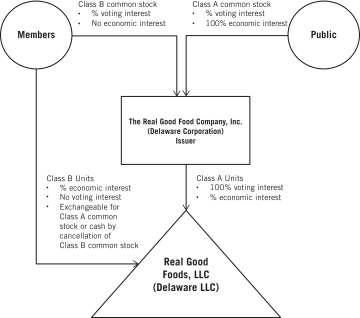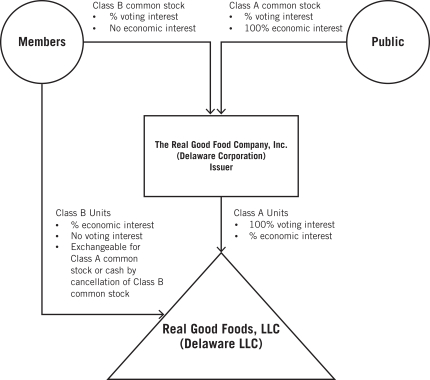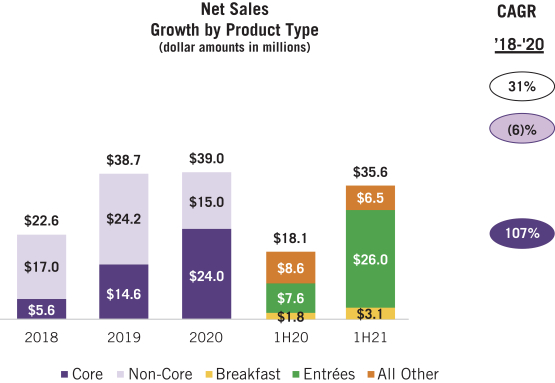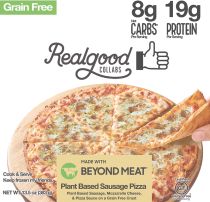whether and when to dispose of assets, whether and when to incur new indebtedness or refinance existing indebtedness, especially in light of the existence of the Tax Receivable Agreement that we entered in connection with this offering, and whether and when we should terminate the Tax Receivable Agreement and accelerate its obligations thereunder. In addition, the structuring of future transactions may take into consideration these existing owners’ tax or other considerations even where no similar benefit would accrue to us. For additional information, refer to the section entitled “Certain Relationships and Related-Party Transactions—Tax Receivable Agreement.”
Risks Related to Our Regulatory Environment
Our operations are subject to regulation by the FDA, USDA, and other federal, state, and local authorities in the U.S., and in any other jurisdictions in which we may sell our products, and there is no assurance that we will be in compliance with all laws and regulations.
Our operations are subject to extensive regulation by the FDA, USDA, and other federal, state, and local authorities in the U.S. and in any other jurisdictions in which we may sell our products. Specifically, for products manufactured or sold in the U.S., we are subject to the requirements of the Federal Food, Drug, and Cosmetic Act (“FDCA”) and regulations promulgated thereunder by the FDA. This comprehensive regulatory program governs, among other things, the manufacturing, nutritional value, composition and ingredients, packaging, labeling, and safety of food. Under this program, the FDA requires that facilities that manufacture food products comply with a range of requirements, including hazard analysis and preventative controls regulations, current good manufacturing practices (“GMPs”), and supplier verification requirements. Our processing facilities, including those of our co-manufacturers, are subject to periodic inspection by foreign, federal, state, and local authorities. We do not control the manufacturing processes of, and rely upon our co-manufacturers for compliance with, GMPs for the manufacturing of our products that they conduct. If we or our co-manufacturers cannot successfully manufacture products that conform to our specifications and the strict regulatory requirements of the FDA, USDA, or other regulatory authorities, we or they may be subject to adverse inspectional findings or enforcement actions, which could materially impact our ability to market our products, result in our co-manufacturers’ inability to continue manufacturing for us, or result in a recall of our product, that have already been distributed. In addition, we rely upon our co-manufacturers to maintain adequate quality control, quality assurance, and qualified personnel. If the FDA, USDA, or another regulatory authority determines that we or our co-manufacturers, suppliers, or other business partners have not complied with applicable regulatory requirements, our business may be adversely impacted.
We seek to comply with applicable laws and regulations through expert personnel with experience to ensure quality-assurance compliance and contracting with third-party laboratories that conduct analyses of new products to establish nutrition labeling information and to help identify certain potential contaminants before distribution. Our existing compliance structures may be insufficient to address the current or changing regulatory environment. This may result in gaps in compliance coverage or the omission of necessary new compliance activity. Failure by us or our co-manufacturers to comply with applicable laws and regulations, or maintain permits, licenses, or registrations relating to our or their operations, could subject us to civil remedies or penalties, including fines, injunctions, product recalls, warning letters, or restrictions on the marketing or manufacturing of products, as well as potential criminal sanctions, any of which could result in increased operating costs and reputational harm. In addition, changes to laws, regulations, or policies applicable to foods could leave us vulnerable to adverse governmental action and materially adversely affect our business, operating results, and financial condition.
The manufacture, labeling, distribution, and marketing of food products is highly regulated, and any changes in existing laws or regulations, or failure to comply with such laws and regulations, could increase our costs and otherwise adversely affect our business.
The manufacture and marketing of food products is highly regulated. We, our co-manufacturers, and our suppliers are subject to a variety of laws and regulations. These laws and regulations apply to many aspects of our business, including the manufacture, packaging, labeling, distribution, advertising, sale, quality, and safety of our products, as well as the health and safety of our employees and the protection of the environment.
In the U.S., we are subject to regulation by various governmental agencies, including the FDA, USDA, FTC, Occupational Safety and Health Administration, and Environmental Protection Agency, as well as various state and local agencies. For example, California currently enforces legislation commonly referred to as “Proposition 65” that requires that “clear and reasonable” warnings be given to consumers who are exposed to chemicals known to the
41













